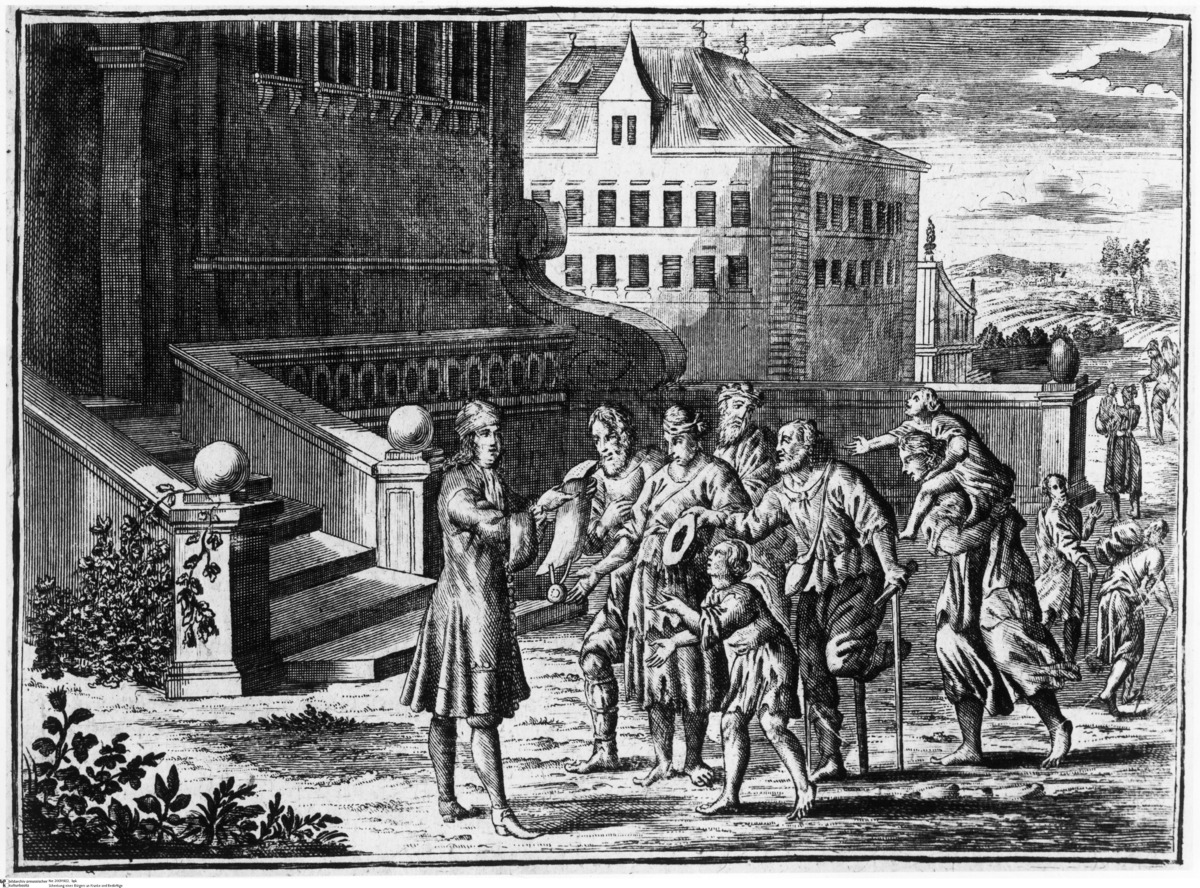Abstract
“Housefather” literature
[Hausväterliteratur] reached its
peaked in the late seventeenth and early eighteenth centuries. Works in
this genre provided instruction on the proper management of all aspects
of a noble household and covered a broad range of topics from
agriculture, cooking, and animal husbandry to education, etiquette, and
the treatment of illnesses. One of most prolific authors of the genre
was Franz Philipp Florinus (1649-99), a Protestant theologian who
compiled Oeconomus prudens et legalis. Oder Allgemeine kluge und
rechtsverständige Hausvatter [Oeconomus
prudens et legalis. Or the Generally Prudent and Judicious
Housefather], a richly illustrated work first published in
Nuremberg in 1702. The engraving below appeared in the 1750 edition. It
shows a propertied burgher offering a gift (money or perhaps a plot of
land) to a group of invalids and paupers. As the scene suggests, in
addition to offering practical tips on household economy, Florinus’ text
also provided examples of proper civic behavior, which entailed treating
others with fairness, humanity, and respect. As the population increased
after the Thirty Years War, so did the number of sick and needy, who
were often forced to rely on the charity of bourgeois individuals
motivated by religious-ethical principles.
